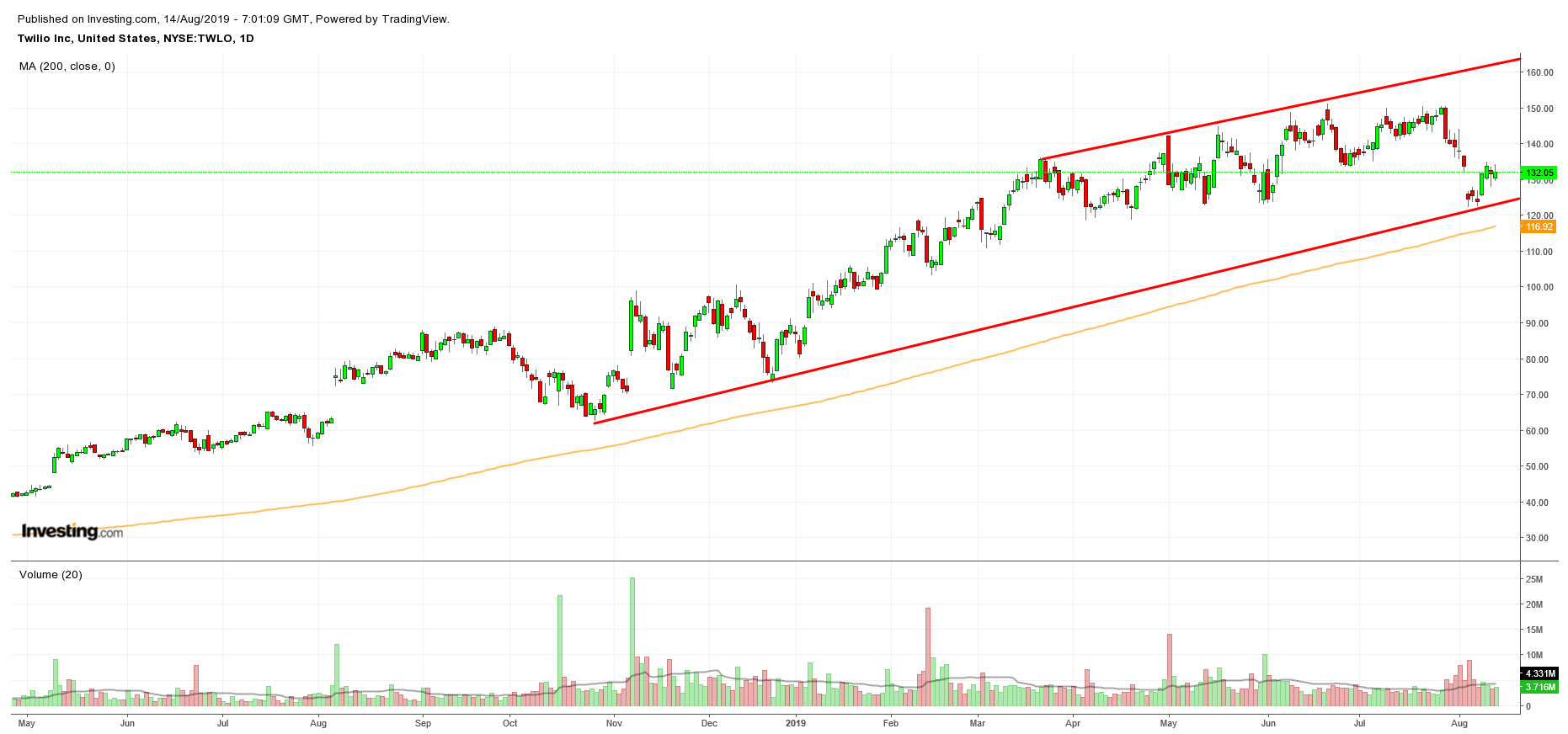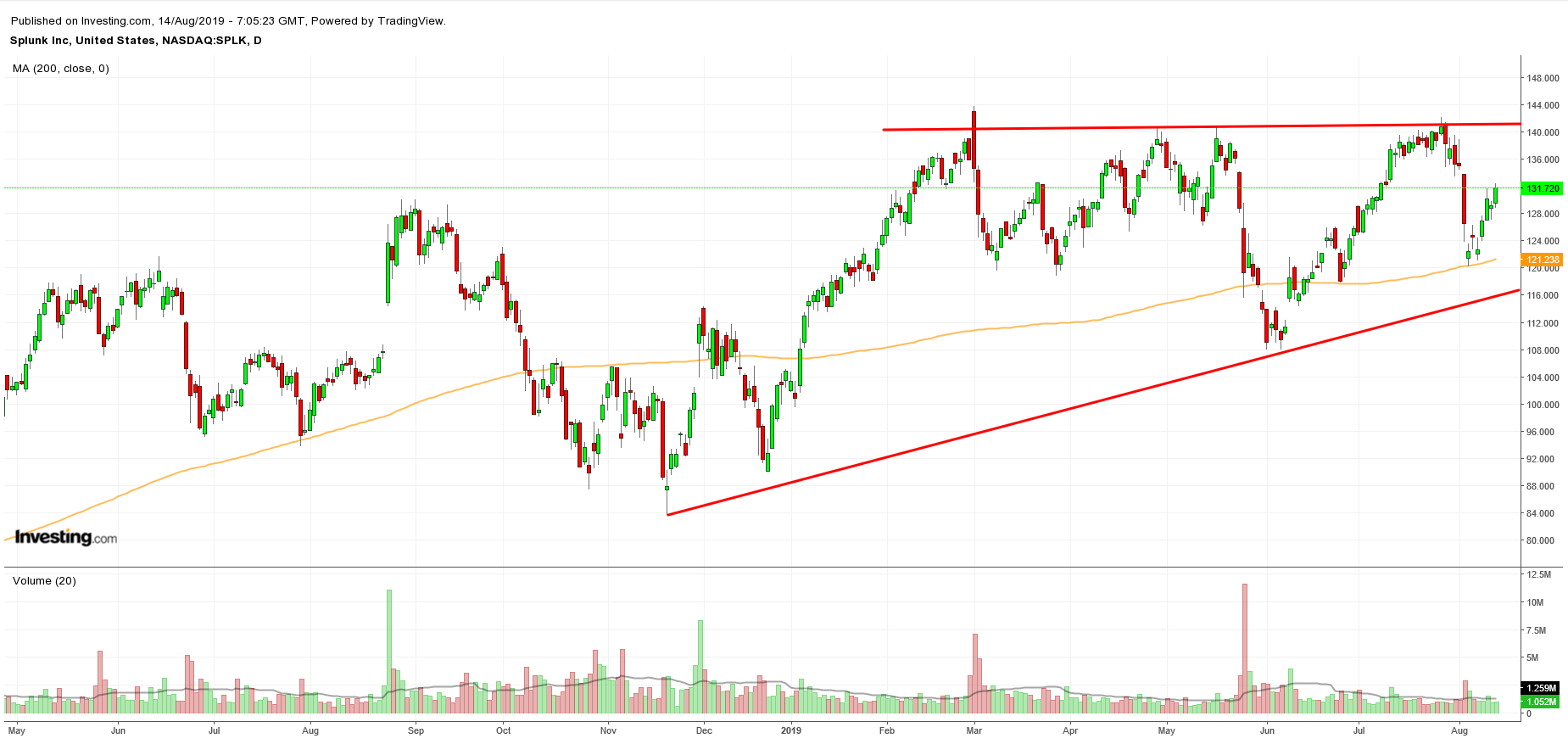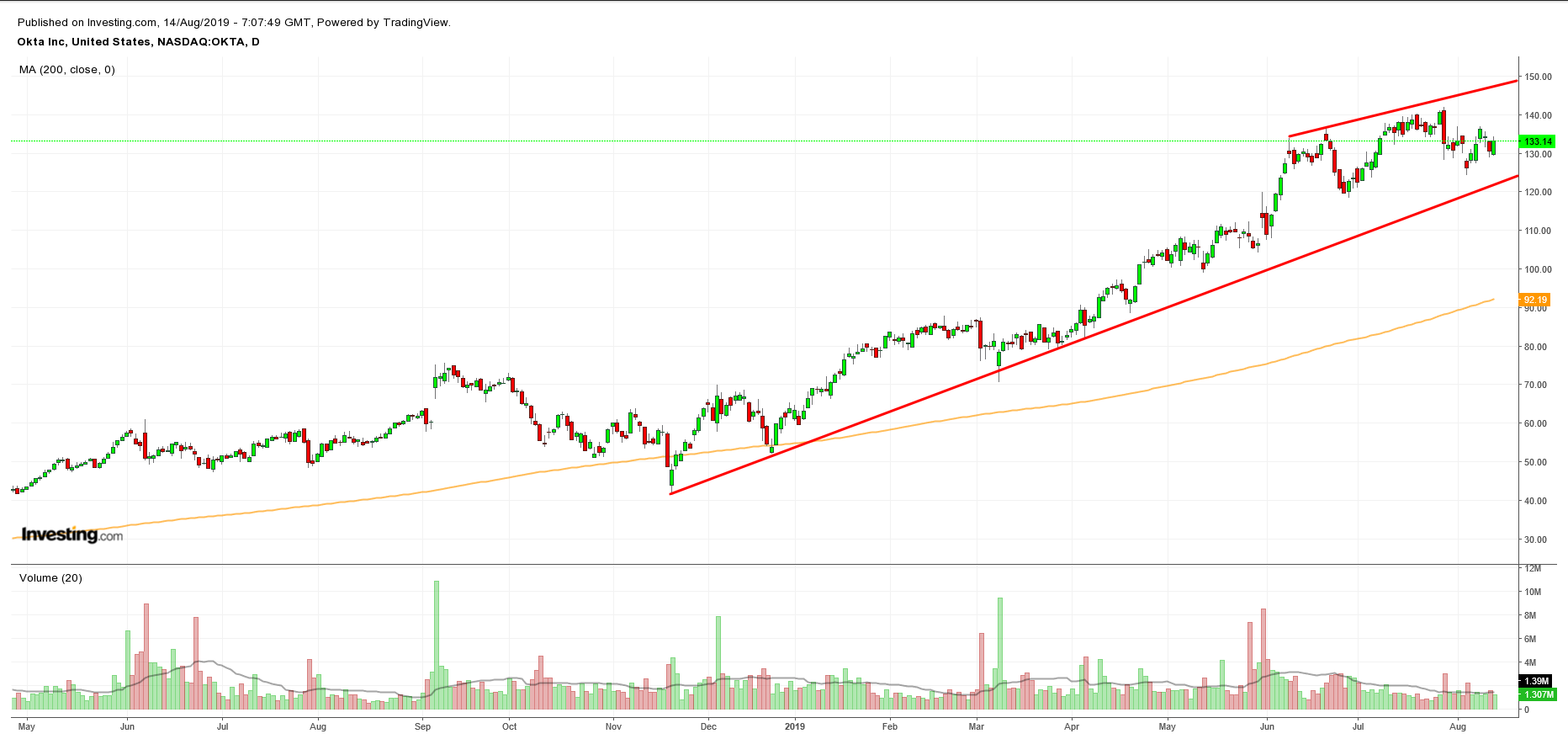Financial markets are currently on fire for anything related to artificial intelligence (AI). Not surprisingly, Gartner currently lists AI and machine learning (ML) near the top of its hype cycle for emerging technologies.
While many of the biggest AI innovations are developing inside the walls of giant technology firms like Google-parent Alphabet (NASDAQ:GOOGL), NVIDIA (NASDAQ:NVDA) and IBM (NYSE:IBM), there’s a plethora of less well-known AI stocks that should be on investors’ radar.
These three tech companies, all coincidentally based in San Francisco, could emerge as market leaders as the trend toward AI accelerates.
1. Twilio: Improving Customer Experience With Artificial Intelligence
Shares of Twilio (NYSE:TWLO), one of the leading names in the communication platform-as-a-service (CPaaS) sector, are up 47.8% so far this year, as investors have grown increasingly bullish on its in-app communication solutions service. The stock closed at $131.49 on Tuesday, giving it a market cap of roughly $17.8 billion.

The cloud communications company offers application programming interfaces (APIs), allowing developers to build video, voice and messaging features into their apps through voice to text AI software. Its Autopilot platform offers AI chatbots for businesses and contact centers as a way to scale user communications and improve customer experience (CX) levels.
According to a recent report from research firm Gartner,
“With only 4% of enterprises having deployed conversational interfaces but 38% planning to or actively experimenting, this market is set for growth.”
By 2020, Gartner predicts that customers will manage 85% of the relationship with a business without interacting with a human.
Taking all these elements into account, Twilio appears well-positioned to take advantage of the growing movement to integrate and employ chatbots to improve CX levels.
2. Splunk: Using Machine Learning To Master Big Data Management
Shares of Splunk (NASDAQ:SPLK), which produces software for collecting, searching and analyzing machine-generated big data, have gained 25.6% this year on strong demand for its Splunk Enterprise management platform.

Splunk utilizes machine learning, a subset of AI, to sort through high volumes of machine-generated data to find actionable and predictive insights, which help drive operational results. In addition, it also offers user behavioral analytics.
Gartner recently wrote in a report that,
“By 2022, 40% of all large enterprises will combine big data and machine learning functionality to support and partially replace monitoring, service desk and automation processes and tasks, up from 5% today.”
With organizations growing increasingly eager to find solutions that can sort through and analyze their wealth of data, Splunk appears to be rapidly transitioning into the go-to name in the space.
3. Okta: Combining Cybersecurity With Machine Learning
Okta (NASDAQ:OKTA) is a cloud-based identity and access management company. It helps businesses manage and secure user authentication and enables developers to build identity controls into apps and website web services.
The stock, which settled at $133.14 last night, has soared a whopping 108% in 2019, giving it a market cap of around $15.2 billion.

The Okta Identity Cloud platform’s identity management solutions allow customers to securely connect their employees, clients, partners and contractors to technology by leveraging machine learning.
A recent report from research firm MarketersMedia said that the global Identity Access Management market is estimated to grow 16% annually to reach $24 billion by 2022. Okta is in prime position to capitalize on this trend in the years ahead.
